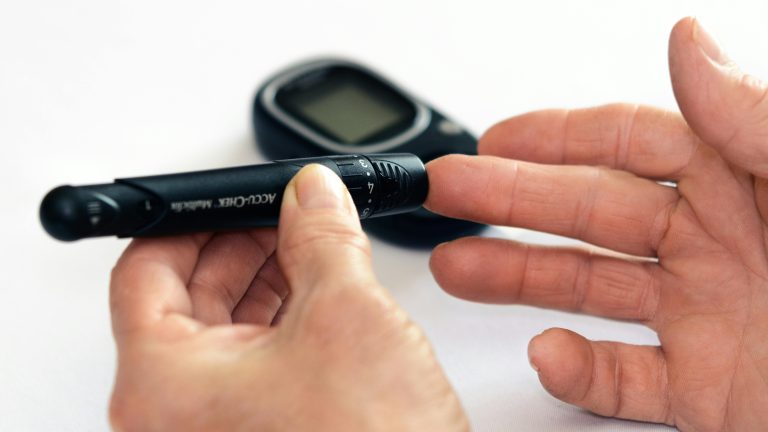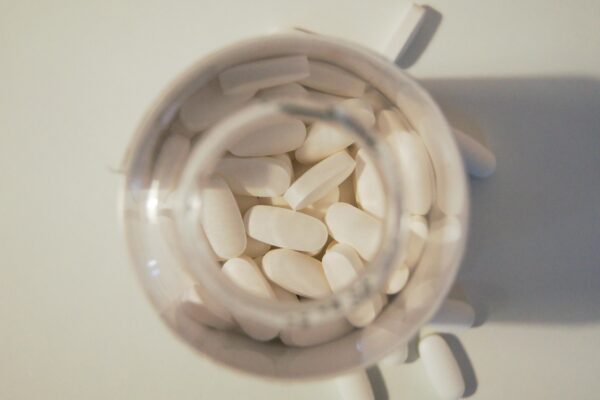Understanding the intricate relationship between testosterone and diabetes is crucial for managing and mitigating the risks associated with these two significant health conditions. In this comprehensive article, we will delve into the scientific connections between testosterone levels and diabetes, explore the impact of testosterone on blood sugar regulation, and provide actionable strategies for managing risk factors.
- The Role of Testosterone in the Body
- Testosterone and Blood Sugar Regulation
- The Bidirectional Relationship: Diabetes and Testosterone
- Risk Factors for Low Testosterone and Diabetes
- Strategies for Managing Risk Factors
- Conclusion
- FAQs: Testosterone and Diabetes
- Question: How does low testosterone affect insulin resistance?
- Question: Can improving testosterone levels help manage diabetes?
- Question: What lifestyle changes can help boost testosterone and manage diabetes?
- Question: Are there specific foods that can help increase testosterone levels?
- Question: How does diabetes affect male reproductive function?
- Question: Can testosterone replacement therapy (TRT) be used in diabetes management?
- Question: What are the potential risks of testosterone replacement therapy?
The Role of Testosterone in the Body
Testosterone, a hormone predominantly found in males but also present in females, plays a vital role in various physiological functions. It is essential for the development of male reproductive tissues, the maintenance of muscle mass, and the regulation of libido. Additionally, testosterone influences mood, energy levels, and overall well-being. Understanding these functions sets the stage for exploring how imbalances in testosterone levels can impact metabolic health and contribute to diabetes.
Testosterone and Blood Sugar Regulation
One of the critical areas where testosterone and diabetes intersect is in blood sugar regulation. Testosterone has been shown to have a direct impact on insulin sensitivity, a key factor in the development of diabetes. Insulin is the hormone responsible for regulating blood sugar levels by facilitating the uptake of glucose into cells for energy production.
Impact of Low Testosterone on Insulin Sensitivity
Research indicates that low testosterone levels are associated with decreased insulin sensitivity, leading to higher blood sugar levels. When insulin sensitivity is impaired, the body’s ability to utilize glucose effectively diminishes, resulting in elevated blood sugar levels and an increased risk of developing type 2 diabetes.
Testosterone Replacement Therapy and Diabetes Management
Testosterone replacement therapy (TRT) has been explored as a potential treatment for improving insulin sensitivity in men with low testosterone levels. Studies have shown that TRT can enhance insulin sensitivity, reduce blood sugar levels, and improve overall glycemic control. However, it is essential to approach TRT with caution and under the guidance of a healthcare professional, as improper use can lead to adverse effects.
The Bidirectional Relationship: Diabetes and Testosterone
The relationship between testosterone and diabetes is bidirectional, meaning that not only can low testosterone contribute to the development of diabetes, but diabetes can also impact testosterone levels. Understanding this interplay is crucial for comprehensive diabetes management.
How Diabetes Affects Testosterone Levels
Diabetes, particularly type 2 diabetes, can negatively affect testosterone production. Chronic high blood sugar levels and insulin resistance can disrupt the hormonal balance, leading to decreased testosterone production. This creates a vicious cycle, as low testosterone levels can further exacerbate insulin resistance and contribute to the progression of diabetes.
Managing Diabetes to Improve Testosterone Levels
Effectively managing diabetes can help improve testosterone levels. By maintaining optimal blood sugar levels through diet, exercise, and medication, individuals can mitigate the negative impact of diabetes on testosterone production. Additionally, weight management and lifestyle modifications play a crucial role in both diabetes control and hormonal balance.
Risk Factors for Low Testosterone and Diabetes
Several risk factors contribute to the development of low testosterone levels and diabetes. Addressing these factors is essential for prevention and effective management.
Age and Hormonal Changes
As men age, testosterone levels naturally decline. This age-related decrease in testosterone can contribute to the development of insulin resistance and diabetes. Regular monitoring of testosterone levels and proactive management can help mitigate these risks.
The Truth About Testosterone and Aging: What You Need to Know
Obesity and Metabolic Syndrome
Obesity and metabolic syndrome are significant risk factors for both low testosterone and diabetes. Excess body fat, particularly around the abdomen, can lead to hormonal imbalances and insulin resistance. Adopting a healthy lifestyle, including a balanced diet and regular physical activity, is crucial for managing these risk factors.
Sedentary Lifestyle and Physical Inactivity
A sedentary lifestyle and lack of physical activity are closely linked to both low testosterone levels and diabetes. Engaging in regular exercise can improve insulin sensitivity, support healthy testosterone levels, and reduce the risk of developing diabetes.
Chronic Stress and Poor Sleep
Chronic stress and poor sleep quality can disrupt hormonal balance, leading to decreased testosterone levels and impaired insulin sensitivity. Implementing stress management techniques and prioritizing quality sleep are essential for overall health and hormonal regulation.
The Sleep-Testosterone Connection: How Getting Good Zzz’s Boosts Your T-Levels
Strategies for Managing Risk Factors
Effectively managing the risk factors associated with low testosterone and diabetes requires a holistic approach. Here are some actionable strategies to consider:
Balanced Diet and Nutrition
Adopting a balanced diet rich in whole foods, including fruits, vegetables, lean proteins, and healthy fats, is crucial for maintaining optimal testosterone levels and managing blood sugar. Avoiding processed foods, sugary beverages, and excessive alcohol consumption can also support overall metabolic health.
Healthy Diet
A balanced diet rich in nutrients can help maintain healthy testosterone levels and reduce the risk of diabetes. Key dietary recommendations include:
- Protein-Rich Foods: Lean meats, fish, eggs, and legumes.
- Healthy Fats: Avocados, nuts, seeds, and olive oil.
- Whole Grains: Brown rice, quinoa, and whole wheat products.
- Fruits and Vegetables: A variety of colorful fruits and vegetables to ensure a broad spectrum of vitamins and minerals.
Regular Exercise and Physical Activity
Engaging in regular exercise, including both aerobic and resistance training, can improve insulin sensitivity, support healthy testosterone levels, and reduce the risk of diabetes. Aim for at least 150 minutes of moderate-intensity exercise per week, along with muscle-strengthening activities.
Weight Management
Maintaining a healthy weight is essential for preventing and managing both low testosterone and diabetes. Focus on gradual, sustainable weight loss through a combination of healthy eating and regular physical activity.
Testosterone and Metabolism: How Hormonal Balance Affects Weight Management
Stress Management and Sleep Hygiene
Incorporate stress management techniques, such as mindfulness meditation, yoga, and deep breathing exercises, into your daily routine. Prioritize quality sleep by establishing a consistent sleep schedule and creating a relaxing bedtime environment.
Regular Health Check-Ups
Regular health check-ups and monitoring of blood sugar levels and testosterone levels are crucial for early detection and effective management of potential issues. Work closely with your healthcare provider to develop a personalized plan that addresses your unique needs.
Conclusion
Understanding the link between testosterone and diabetes is essential for managing and mitigating the risks associated with these conditions. By adopting a proactive approach to lifestyle modifications, including a balanced diet, regular exercise, stress management, and regular health check-ups, individuals can improve their overall health and reduce the impact of low testosterone and diabetes on their lives.
Studies and Sources





